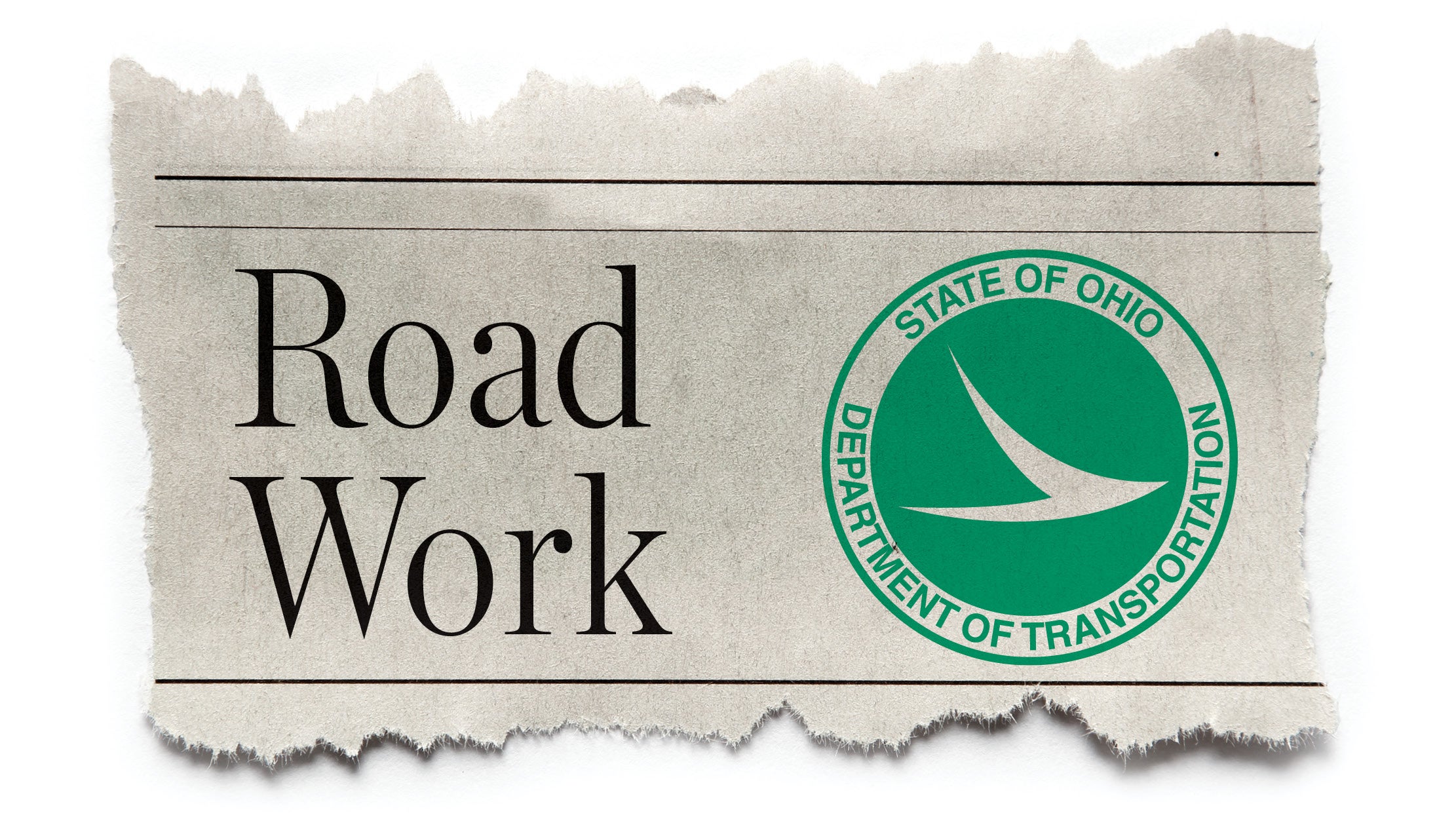The Fiscal Crunch
Published 12:00 am Sunday, September 16, 2012
Ironton officials assess city’s finances
Early in 2012 Ironton officials cautioned that it would be a year of change for services and residents.
And it has been, at least somewhat.
Ironton residents were asked to pay an extra $6 a month for the municipal fee. Many citizens who live in the city but work elsewhere were asked to pay more in income taxes. The city consolidated 911 with the sheriff’s office, required some employees to pay a portion of their retirement pickup and initiated layoffs after union negotiations broke down.
All these changes were driven by the city’s need to strengthen a budget that had seen revenues decline and expenses increase in recent years. The big question remains: Have the changes had the desired impact?
The answer appears to be a very tenuous “yes” — for now.
But, financially speaking, is the city where it needs to be? City Council President Mike Lutz, who also heads the finance committee, says “no.”
And there are many reasons why.
Ironton Finance Director Kristen Martin said, as of July 31, revenues were at $3,038,000 and expenses were at $2,874,000. While that may look good on paper, Martin said the reality is that, “We started the year with a $130,000 deficit. This gives us a little over $30,000 as a positive cash balance.”
“We’re much better off than we were a year ago but we’re still vulnerable.”
And Martin warned, “An unplanned expense for the city would be catastrophic to the budget.”
The city adopted a budget earlier this year that totaled $5.16 million in revenue and $4.96 million in expenses.
Martin said city officials meet monthly with department heads and no department is over budget.
“I think everyone is being very frugal with the city’s money and very mindful of the taxpayers,” Martin said.
Mayor Rich Blankenship sees Ironton’s problem as a problem shared by other cities and while he is mindful of the current situation, he is hopeful a lot of hard work now will pay off in the future.
“The current state of our economy nationwide is poor but we will remain positive and work diligently in efforts to attract new businesses and expand current businesses,” Blankenship said.
So, how did the city get to this point?
Revenues
Earlier this year city council repealed a long-standing law called a reciprocity agreement. It allowed people who live in Ironton but work in other cities that have an income tax to pay only a portion of the city’s 1 percent tax. With no agreement, residents are required to pay the city’s 1 percent income tax regardless of what they pay elsewhere.
This move was estimated to put $400,000 in city coffers.
Martin said, to date, the repeal of the reciprocity agreement in the city’s income tax code has made a positive impact on the budget.
The revenues collected from the repeal of reciprocity “is up over $60,000 (from last year),” Martin said. “We’re right where we were projecting it should be.”
City Councilman Kevin Waldo, who serves on the finance committee with Lutz and fellow Councilman Aaron Bollinger, said the income tax is a problem area for the city. While everyone may use the services the city offers — police, fire protection, trash disposal, water and sewer — not everyone truly pays the same for those services.
“Our population is decreasing and the number of people paying income tax is decreasing,” Waldo said.
City council raised the municipal fee from $8 to $14 as a way to bring revenues into line with expenditures. The hike from $8 to $14 brought in an additional $450,000 to the city. Waldo said he favored doubling the $8 municipal fee that was in place at the beginning of the year because it would have generated badly needed revenue.
Martin said collections are up by $125,000 as of July 31. But the problem with the municipal fee is that next April it drops from $14 to $11, a move that will reduce the municipal fee revenue by nearly $130,000.
Subtractions by the state
Martin said, while changes in reciprocity and the municipal fee are having a positive impact on the budget, there are some negative changes beyond the control of city officials.
Local government funds provided by the state are down $70,000 from last year. The money the city gets from inheritance taxes is being phased out and, consequently, is down by $80,000.
Do the math: These two items alone account for $150,000 — money the city depended on in years previous but is not there anymore.
Although these state funding changes were factored into the city budget, Martin said it is still less money to work with than in previous years.
“There were some years the inheritance tax brought in $300,000,” Martin said.
State and local government funds have dwindled to $472,000 in 2011. City leaders have budgeted for only $397,000 in 2012.
Problems
Martin said one issue the city faces is that not all employees have agreed to begin paying 7.5 percent toward their retirement, which was one of the key components for a balanced 2012 budget.
The state requires each employee to pay 10 percent of his or her retirement contribution. For years the city has paid that for all employees, at a cost of approximately $300,000 a year.
At council’s mandate earlier this year, non-union employees began paying 7.5 percent of the 10 percent. The city’s three unions that represent police, fire and public works employees were not required to per their existing collective bargaining agreements that were — and still are for two of the three — being negotiated.
Police and public works unions chose to lay off employees rather than agree to the retirement change. The firefighters union agreed to begin paying 3 percent and made some other changes regarding uniform and food allowances.
The savings from having non-union employees pay 7.5 percent of their retirement is approximately $40,000. The savings from the firefighters agreement is $22,000. The potential savings that would be realized if both police and public works also accept the change is $134,000.
“If the unions don’t get on board with contributing to the pension pickup and the departments continue to operate at or near a deficit, there will be additional layoffs and loss of services in upcoming budgets,” Martin said.
When they were debating ideas for the 2012 budget, council discussed having employees pay a higher percentage of their health insurance premium. Right now employees pay only 5 percent of their health premium. If the percentage had been increased to 10 percent, that move would have saved the city $72,000 a year.
The city’s unions have balked at the idea of paying more for health care and any part of their retirement because they contend that, in years past, the city agreed to fund these items in lieu of pay raises which would have cost the city more money.
But Waldo said the argument that unions passed up raises for fully paid insurance and retirement pickups years ago doesn’t hold water now.
“(Health insurance) premiums were $400 a few years ago and are $1,500 now,” Waldo explained.
The police and public works unions cut their total budgets by 7.5 percent by laying off employees and the city has continued to pay the retirement pickup for employees.
The police department laid off three officers this spring. One chose to take a voluntary layoff to save the job of a younger officer. One of the two other officers was later recalled. That agency also laid off its three dispatchers.
The public works union laid off six employees, two from the sanitation department and one each from water administration, water distribution, income tax and wastewater.
The fire department laid off two firefighters and a third employee chose to take a job elsewhere. The two firefighters were brought back to the job after the firefighters union agreed to begin paying 3 percent of their pension pickup and take cuts to food and uniform allowances.
Waldo said the layoffs, particularly in public works, have hampered the city’s ability to perform many of the services it offers.
The problem, Waldo says, is not just that people got laid off, but that, according to the contract agreement with the public works union, employees in different departments but with more seniority overall were allowed to “bump” people with less seniority for jobs they may not be trained to do.
Imagine for a moment the city cut a position in the street department. If that employee had more seniority than someone in the water administration office, he or she could “bump” that employee. The water administration employee, who may have been doing the job for several years, would lose his or her job and the street department employee could take the water administration office job, even though that employee doesn’t have the same level experience at that job or even know how to do it at all.
Mayor Rich Blankenship said talks with the police and public works unions continue. He met last week with the American Federation of State County and Municipal Employees (the union for public works employees).
“We have sent several different dates to meet with FOP reps that is still to be determined,” Blankenship said. “My hopes are that we can reach an agreement and avoid mediation and arbitration, which would cost the city a large amount with both unions.”
Meanwhile, as the city struggles to bring in new money and carefully spend the money it does have, the cost of just about everything is going up, even for things its citizens may not even think about.
“The operation costs to the city increases yearly, such as the chemicals to treat water, sewer, gas, electric, parts for vehicles, supplies to work on busted water lines and so on,” Blankenship said. “Nothing is cheap.”
Looming on the horizon
Waldo said real solutions to the city’s problems would have to be drastic because the challenges are significant.
“A hundred thousand dollars here and there is not going to fix the problems the city is facing,” Waldo said. “What people don’t understand is how serious these problems are.
We continue to provide services that continue to increase in cost and our revenues are not enough to continue to provide those services.”
Waldo said he would consider cutting garbage collection service but not the fire department because home-owners insurance premiums would be adversely affected. He said the contract the city has with the police department does not allow the city to cut its police department and turn law enforcement over to another agency, public or private. Martin said the savings from not having a sanitation (trash collection) department would be a little more than $641,000 but would have little or no impact on the general fund. The city would have to contract with a private collection agency to handle the city’s sanitation needs.
Waldo said he is also concerned that any large-scale natural disaster — a flood or a tornado, for example — would be catastrophic not only to the citizens but to city finances: There is no money set aside for an emergencies of any kind.
“It scares me to death to think of what would happen to this city is there was a flood like the one in 1937,” Waldo said.
The city’s floodwall pumping system is outdated. When pumps break, they’re expensive to fix — if the city can find the parts. Right now maintaining the system costs $150,000 a year.
Floodwall Supervisor Mike Pemberton has warned the city in recent years about the state of some of the city’s pumps and other equipment that was designed to keep the city high and dry in the event of a flood. The problem is that with an antiquated system, there is concern some day those pumps might fail.
And earlier this year U.S. Army Corps Of Engineers representative David Humphreys told council the corps is tightening its restrictions on the floodwall system to make sure it is safe in the event of a disaster. Asked how much the new restrictions would cost the city, Humphreys said he didn’t know.
Solutions
So how will 2012 end, financially speaking, and what changes need to be made in 2013 to keep the city operating?
The city is projected to end the year with about $72,000 in the general fund, which is where most of the city’s operations and expenses come from.
“We may squeak by this year, barring nothing catastrophic happening. But with the cost of services rising and our revenue not, we are going to have to make some tough decisions regarding services,” Lutz said.
Waldo said he would like to see just about anything to increase revenue.
“If I had my way we’d double the income tax,” Waldo said.
He conceded doubling the tax would require a levy to be put on the ballot and that it has no chance of passage. If such a levy did get voters’ approval and the 1 percent income were raised to 2 percent, the city would see an increase of $2.5 million annually.
Without more money, Waldo said, the city must begin to cut services.
Waldo also lamented that planning for the future has not been the city’s strong suit and its dwindling resources may be partly to blame.
“We have no overall budget plan and no development plan,” Waldo said.
As for economic development, “We talk about it,” he said, “but we never do anything to facilitate it.”
He conceded that part of the reason is that the city has no money. Waldo also said he is disappointed there is no real marketing plan to sell land that is available, such as former Ironton Iron property.
Lutz agreed economic development is key to the city’s future.
Recent talk of some city leaders turning down new business or not supporting existing ones clearly rankles Lutz.
“We certainly are not in a position to turn away any business that wants to come to Ironton or make it difficult for any of the current businesses to expand,” Lutz said. “There are companies interested in some of the available property in town. We need to support growth.”
Blankenship is adamant that positive growth is possible.
“I remain optimistic that the Ironton Port Authority will work through the current potential business expansions at the Industrial Park, which will add jobs to our community,” Blankenship said.




